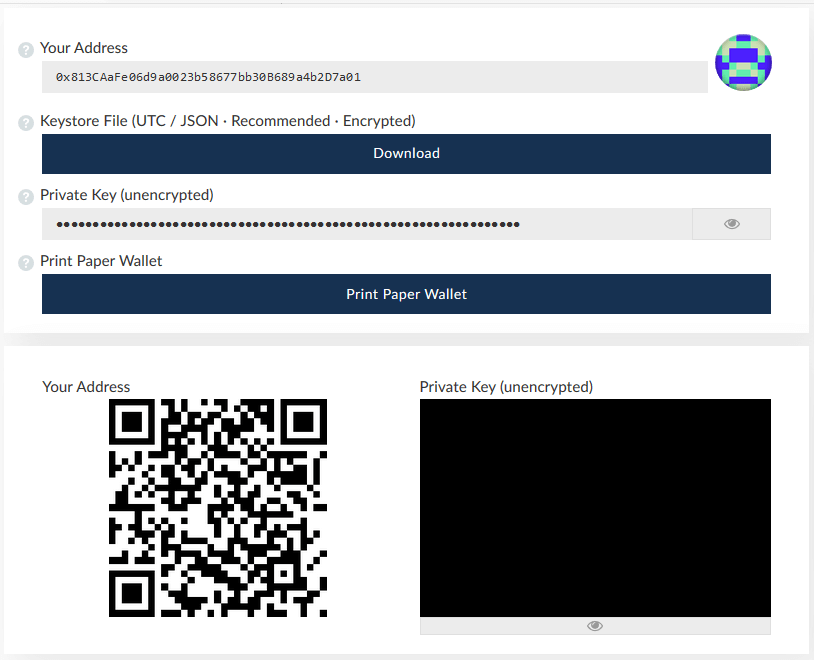- Generate Keystore File Using Private Keys Ethereum Code
- Generate Keystore File Using Private Keys Ethereum Free
- Generate Keystore File Using Private Keys Ethereum Key
Mist uses a 'keystore' file to hold your private key. This is an encrypted file, granting an additional layer of protection to just storing your private key in plain text. Here's an article explaining how to locate your keystore file(s) & back them up. Enter a password as prompted and write it down somewhere. This password is used to decrypt the Keystore/UTC/JSON file that contains your private key. Click ‘Create New Wallet’. Next, you will be prompted to download your keystore file. It will be called something like ‘UTC–’ This file is written in JSON format. When using the Ethereum Wallet / Mist Browser or when running the geth Ethereum node the wallet information is stored in a keystore file. In this file the private key is encrypted using the wallet's password. The ethkey tool reads the keystore file and extracts the decrypted private key and the checksum encoded public wallet address. Looks like all I had to do was this: openssl pkcs12 -export -in my.crt -inkey myh.key -certfile intermediary.pem -name 'tomcat' -out keystore.p12 keytool -importkeystore -srckeystore keystore.p12 -srcstoretype pkcs12 -destkeystore keystore -deststoretype JKS.
This article explains how to create a keystore file using Nethereum.

Note
Generate Keystore File Using Private Keys Ethereum Code
You also have the possibility to run similar code directly in your browserby using Nethereum’s playground at the following link:Key Store: Create Scrypt based KeyStore using custom params
Generate Keystore File Using Private Keys Ethereum Free
Definition: A keystore is a JSON-encoded file that contains a single (randomly generated) private key, encrypted by a passphrase for extra security (using https://github.com/ethereum/wiki/wiki/Web3-Secret-Storage-Definition#scrypt).Keystores are a standard way to store private keys locally to let clients such as Geth handle privateKey/signin for you. Nethereum offers a dedicated ‘keystore’ service to facilitate the creation and management of keystore files.
Required assemblies:
1- Creating a Keystore File:


We first need to create an instance of KeyStoreScryptService:
scryptThe Generate Keystore File Using Private Keys Ethereum Key
EthEcKey function generates an Ethereum compliant privateKey: The last element that we need to generate our file is a password:We can finally encrypt and serialize using our custom scrypt params:2- Decrypting a key
Extracting our private key is achieved using DecryptKeyStoreFromJson